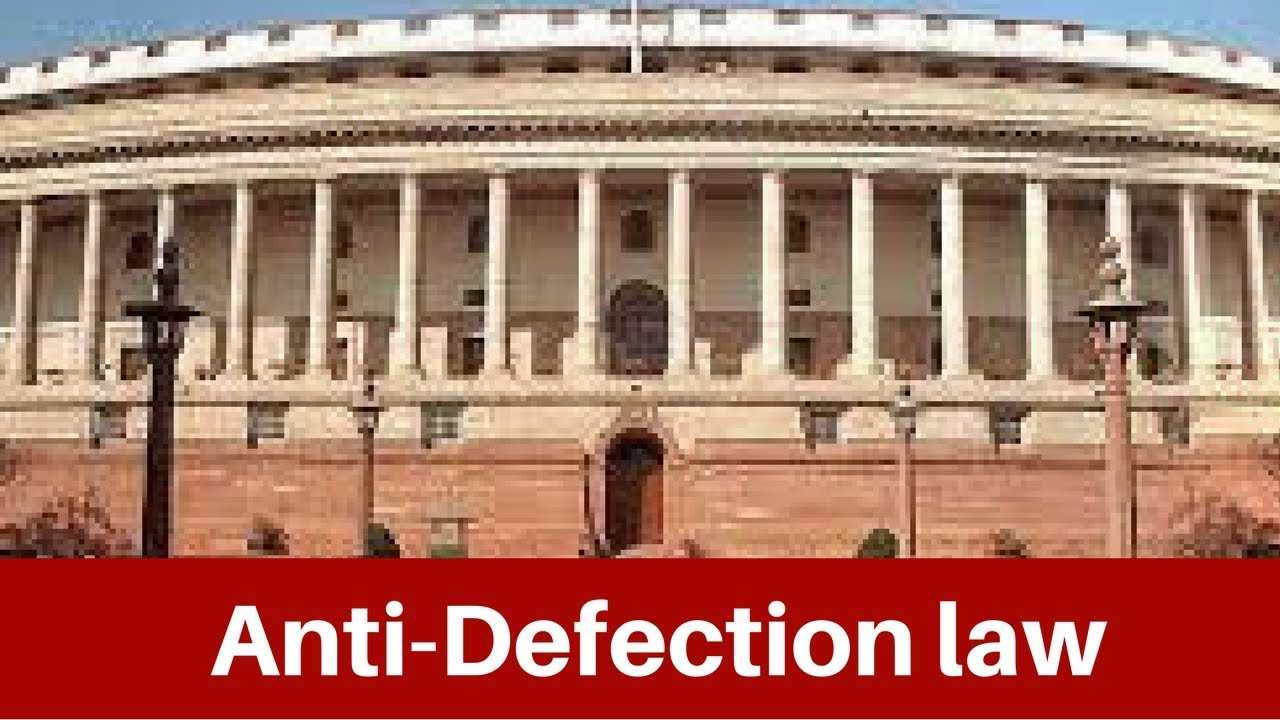You must have heard this famous hindi lines from your elders “aaya Ram gya Ram” Which simply means that someone is coming whenever he wants to come and going whenever he wants to go and no one is bounded to stay. Something like this was happening Around 1967 when a political leader/MLA Gaya Lal of Haryana changed his party three times within the same day in that year. So Anti-defection law has power to prevent such political defections which take place in politics of our country which can be for better position in party, rewards given by office or some similar opportunities they get from party they choose. In fifty second Amendment of 1985 the Anti-defection law was passed by the Constitution of India and this was the Tenth Schedule of the Indian Constitution.
What is Anti-defection law?
The Anti-Defection Law establishes the process in which the legislators can be disqualified on the basis of defection by the Presiding Officer of a legislature. This disqualification will take place if any other member of the House file a petition. State legislature or a Member of Parliament is deemed to have defected if he either voluntarily resigned from membership of his party or disobeyed the directives of the party leadership on a vote. So basically this Act was enacted to solve the problem of instability due to democratically elected legislators of Indian Parliamentary System of Government changing allegiance from the parties they have supported at the time of election and don’t obey parties decisions at critical times such as at the time of voting or may be at the time of an important resolution. These kinds of shifting of allegiance/party can be reason or symptom of political corruption and laws like Anti-defection law provide some legitimization for corruption prevalent in other parts of life in India. Articles 101, 102, 190 and 191 of the Indian Constitution are regarding vacation of posts/seats and disqualification from membership of Parliament and the State Legislatures and these Articles help in setting out certain provisions as to disqualification on the ground of defection done by any Legislator.
What are the Features of this law?
- If a person is disqualified under the Tenth Schedule so he will be disqualified for being a member of either House of Parliament.
- If a person is disqualified under the Tenth Schedule he will be disqualified for being a member of the Legislative Assembly or Legislative Council of a State.
- The Tenth Schedule includes Articles 102(2) and 191(2) this addition of Tenth Schedule took place after the Ninth Schedule of the constitution.
Advantages and disadvantages of this law
Advantages:-
- This law prevents shifting of the party allegiance and brings stability in the Government.
- This law ensures that candidates remain loyal toward the policies of the party after they are elected with the support of party on the basis of manifestoes of the party.
- It also brings/promotes discipline in the party.
Disadvantages:-
- It reduces the accountability of the government to the Parliament and people by preventing parliamentarians from changing parties.
- It curbs dissent against party policies which means it interferes in the member’s freedom to speech and expression.
The main motive of this law is to prohibit “THE EVIL OF POLITICAL DEFETIONS”.








Leave A Comment